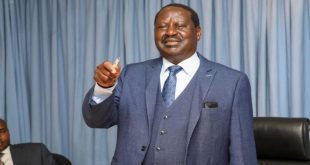Kenya’s former Deputy President Rigathi Gachagua has publicly criticized President William Ruto’s administration, accusing it of hypocrisy for prioritizing international peace efforts in the Democratic Republic of Congo (DRC) while allegedly overlooking escalating security crises at home. The sharp rebuke, delivered during a Sunday church address, has ignited fresh debate over Kenya’s domestic and foreign policy balance.
Gachagua’s Allegations:
Speaking at a religious gathering on February 2, Gachagua lambasted Ruto’s government for what he described as misplaced priorities. “How can our leader broker peace abroad while Kenyan youth face abduction and violence here?” he questioned, referencing rising claims of extrajudicial killings and enforced disappearances under Ruto’s tenure.

“Pretending to solve DRC’s conflicts when our own children are suffering is sheer hypocrisy,” Gachagua asserted, urging the administration to address local security grievances before mediating regional disputes. His comments come amid mounting pressure from human rights groups investigating alleged state-linked abuses.
Ruto’s Diplomatic Engagements:
The criticism contrasts sharply with Ruto’s active role in regional diplomacy. On January 27, the Kenyan leader held talks with French President Emmanuel Macron, securing Paris’ backing for East African initiatives to stabilize eastern DRC, where decades-long conflict has displaced millions.
“President Macron affirmed France’s support for our regional peace roadmap,” Ruto stated, framing the collaboration as critical to resolving the crisis. As chair of the East African Community (EAC), Ruto has spearheaded multilateral dialogues, including a high-profile summit on January 27 attended by five regional heads of state.
EAC Summit Outcomes:
The Nairobi meeting, which included Uganda’s Yoweri Museveni, Tanzania’s Samia Suluhu, Rwanda’s Paul Kagame, Burundi’s Évariste Ndayishimiye, and South Sudan’s Salva Kiir, culminated in a unified call for an “immediate ceasefire” in eastern DRC. A post-summit communiqué urged Kinshasa to engage directly with armed factions, including the M23 rebels, to address grievances through dialogue.
Notably absent was DRC President Félix Tshisekedi, whose government has repeatedly accused Rwanda of backing M23 militants—a claim Kigali denies. Analysts suggest Tshisekedi’s no-show underscores lingering distrust in regional mediation efforts.
Domestic vs. Diplomatic Priorities:
Gachagua’s remarks highlight growing tensions between Ruto’s international aspirations and domestic discontent. While the president positions Kenya as a continental peacemaker, critics argue systemic issues—from unemployment to police brutality—demand urgent attention.
Human Rights Watch recently documented over 100 alleged enforced disappearances in Kenya since 2022, with victims often linked to opposition protests or grassroots activism. The government has denied involvement, labeling the reports “unverified.”
Regional Implications:
The DRC conflict remains a litmus test for East African unity. Despite the EAC’s deployment of a joint military force in 2022, violence persists, with M23 rebels seizing swaths of North Kivu province. Ruto’s push for non-military solutions reflects a broader strategy to position Kenya as a neutral arbiter, though skeptics question the feasibility of dialogue amid entrenched hostilities.
Looking Ahead:
As Ruto navigates dual pressures—fostering regional stability while addressing homegrown unrest—the political tightrope grows increasingly precarious. Gachagua’s critique signals potential fractures within Kenya’s leadership, raising questions about how effectively the government can balance global diplomacy with local accountability.
For now, all eyes remain on eastern DRC, where ceasefire compliance hangs in the balance, and on Nairobi, where calls for transparency in security operations grow louder by the day.
 Kenya Breaking News Breaking News Now
Kenya Breaking News Breaking News Now
